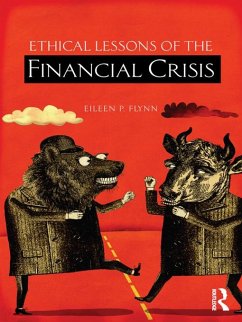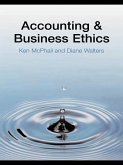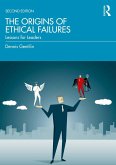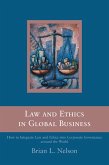The actions they took required technical competence, pragmatic judgments and controversial decisions. They worked through a crisis to try to prevent a very bad situation from becoming a catastrophe. As events played out in the autumn of 2008, there was little time to reflect on how immoral conduct contributed to the crisis and how financial recovery needs to be built on an ethical foundation. The purpose of this book is to examine the role of ethics in setting things right. In taking a close look at the events of 2008 this book makes an important contribution to business ethics.
Dieser Download kann aus rechtlichen Gründen nur mit Rechnungsadresse in A, B, BG, CY, CZ, D, DK, EW, E, FIN, F, GR, HR, H, IRL, I, LT, L, LR, M, NL, PL, P, R, S, SLO, SK ausgeliefert werden.









